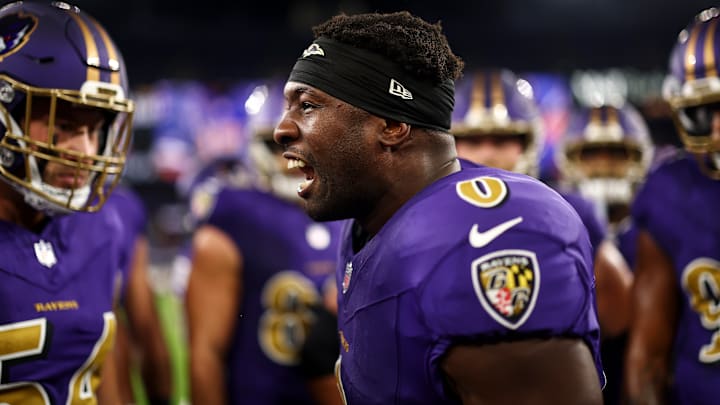This week, Baltimore Ravens linebacker Roquan Smith got some unexpected news: the NFL has officially rescinded the $16,883 fine it levied against him for an alleged “hip drop” tackle on Tampa Bay receiver Chris Godwin.
The tackle itself was part of a heated moment late in the game, and Smith’s play, which left Godwin with a dislocated ankle, didn’t actually draw a flag at the time. However, the NFL fined Smith after a review, citing concerns about the hip-drop tackle - one of the league’s newest rule adjustments meant to reduce high-risk plays.
Here is the play on which Chris Godwin was hurt that now will be under review: https://t.co/wzw0Ob5jPn pic.twitter.com/7JOYezfrsQ
— Adam Schefter (@AdamSchefter) October 22, 2024
The hip-drop technique, where a defender’s body weight drops onto an opponent’s lower extremities, has been shown to have a much higher chance of causing injury, and the league has been working to phase it out.
Roquan Smith successfully appeals hip-drop tackle on Tampa Bay Bucs' Chris Godwin
Smith’s successful appeal is somewhat unusual, and it highlights the ongoing tension between the NFL’s safety initiatives and the practicalities of defensive play. This year, several fines have been handed out for similar tackles without penalties being called in real-time, sparking debate among players, coaches, and fans about the rule’s application.
The reversal of Smith’s fine suggests the league may be listening to concerns about how difficult it can be for defenders to change their mechanics in the heat of a play.
Upon appeal, NFL hearing officer Jordy Nelson has rescinded the $16,883 fine levied against Ravens LB Roquan Smith for his alleged unnecessary roughness on Chris Godwin on the play that ended in the Bucs WR dislocating his ankle, per source. pic.twitter.com/nLFO69e2pE
— Adam Schefter (@AdamSchefter) November 12, 2024
The unexpected outcome is a small win for Smith, who publicly maintained that he never intended to cause harm and expressed respect for Godwin after the game. The Ravens linebacker stated he plays the game as safely as possible within the position's required physical limits, and he wished Godwin a quick recovery.
In this instance, the league’s decision seems to acknowledge that defensive players like Smith often face difficult split-second decisions.
Smith’s overturned fine may set a precedent, showing that the NFL is open to reconsidering penalties under this new rule. Yet it raises a key question: how exactly will this rule be enforced moving forward? Fans and players alike will be watching to see if the NFL continues to issue fines for these tackles or if they make further adjustments, perhaps even penalizing the plays in real time instead of issuing fines after the fact.
The NFL’s decision to rescind the fine could also be seen as a step toward clearer enforcement of player safety rules. With Smith’s case, it’s clear the league is still finding its footing when it comes to fairly applying these new guidelines.
For now, Smith is off the hook, but his case highlights the complex line defenders are being asked to walk as they balance physicality with the NFL’s evolving standards for safety.
